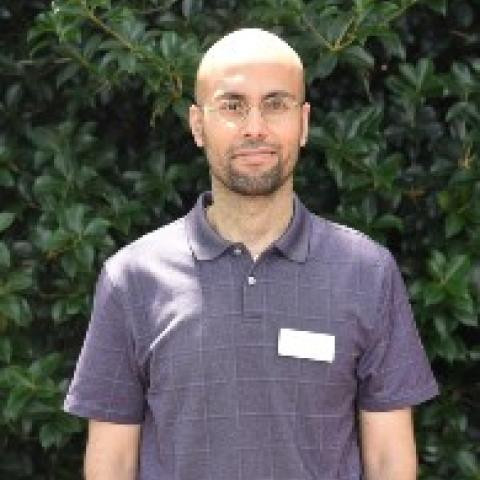UVA Advance Course Catalog
Class offerings for Summer 2026 are still being finalized. We expect to add more elective classes and descriptions in coming weeks.
Last updated: January 8, 2026
Course Selection & Placement
Students in UVA Advance enroll in two undergraduate classes, for a total of six credits.
The first class is selected from one of the four Core classes and is comprised solely of students in the UVA Advance program. Core classes meet daily, Monday-Friday, from 2:00-4:15.
The second class is selected from the Elective offerings, which consist of suitable 1000- and 2000-level undergraduate classes which fit the program schedule. Students will enroll alongside other undergraduates in these classes. Elective classes meet daily, Monday-Friday, from 10:30-12:45.
With rare exception (e.g. foreign language classes) there are no prerequisites for any courses open to UVA Advance students, though course faculty may desire students to have mastered certain levels of math or science, if applicable.
UVA Advance students do not directly enroll in classes. In mid-late spring, admitted students will rank their top choices for both Core and Elective classes via a survey, after which they will be notified by program staff of their final course placements.
Every effort is made to place students in one of their top two choices for each class, though this cannot be guaranteed.
Please note that the courses in this catalog, particularly the Elective offerings, are tentative and subject to change. Students who do not complete the Course Selection Survey will be enrolled in courses based on available space.
Core Classes
Students take one of the following:
Environmental Sciences: Introduction to Oceanography
This course analyzes the principles that govern the world's oceans and their integration into an understanding of the major marine environments. Topics include marine pollution, global climate, and marine policy.
Instructor: Professor Stephen Macko

Stephen Macko
Professor of Environmental Sciences
Global Studies: Global Commerce in Culture
This course is an intellectual opportunity for students who face a bewildering variety of choices in their college years, choices of majors, schools and careers.
The course offers a liberal arts perspective on commerce, or business, as a part of modern American (and global) culture. It will be an exercise in what we can call deep reading: looking beneath the surface of some of the commonsense wisdom you hear about majors and careers.
The course is interdisciplinary, offering insights from the social sciences and humanities. One of its primary purposes is to help students see how different disciplines talk differently, even while agreeing, about the same things. I hope this course will give students the ability to step outside their commonsense conversations about majors and careers, and to scrutinize those conversations as part of a strange culture which, although they participate in it, they don’t fully understand.
Note: This course is not part of the McIntire School of Commerce
Instructor: Professor Laura Goldblatt

Laura Goldblatt
Assistant Professor
History: Genocide
One of the defining features of the twentieth century was the repeated use of genocide and other forms of one-sided mass violence by states against internal and external populations. In this course, we will explore these phenomena from theoretical and historical perspectives, with particular attention to the Armenian genocide, the Holocaust, the mass atrocities carried out by maximalist Communist regimes (e.g., Stalin’s USSR, Mao’s China, and Pol Pot’s Cambodia), and the “ethnic cleansings” and genocides of the post-Cold War era (e.g., in the former Yugoslavia and Rwanda). While the experience of victims will be of central concern, we will also examine the experience and motivations of perpetrators, the explicit and implicit goals of regimes that resort to one-sided mass violence, and the response—or lack of response—by members of the international community.
Instructor: Professor Jeffrey Rossman

Jeffrey Rossman
Associate Professor of History
Statistics: Introduction to Data Science with Python
This course provides an introduction to various topics in data science using the Python programming language. The course will start with the basics of Python, and apply them to data cleaning, merging, transformation, and analytic methods drawn from data science analysis and statistics, with an emphasis on applications. No prior knowledge of statistics, data science, or programming is required.
Note: The primary focus of this class is statistical data analysis, not Python programming.
Instructor: Professor Harsimran (Sam) Somal

Harsimran Somal
Assistant Professor of Statistics
Elective Classes
Students take one of the following:
African American Studies: Black Femininities and Masculinities in US Media (AAS 2224)
This course, taught as a lower-level seminar, will address the role the media has played in creating images and understandings of 'Blackness' in the United States, particularly where it converges with popular ideologies about gender.
Art: Introduction to Studio Art (ARTS 2000)
An introductory course, divided into three segments, which serves as a prerequisite to all studio courses. In Drawing students will learn observational drawing and how visual thinking connects with the hand. The Conceptual segment will exercise creative problem-solving skills and teach students to engage in critical discourse. The Digital segment teaches basic technical skills and digital tools including still and moving image and sound.
Astronomy: Introduction to Stars, Galaxies, and the Universe (ASTR 1220)
A study of stars, star formation, and evolution primarily for non-science majors. Topics include light, atoms, and modern observing technologies; origin of the chemical elements; supernovae, pulsars, neutron stars, and black holes; structure and evolution of our galaxy; nature of other galaxies; active galaxies and quasars; expanding universe, cosmology, the big bang, and the early universe.
Drama: How Dance Matters (DANC 1400)
This course is an introduction to dance in the context of performance on stage, on screen, and in public space. Through viewings, discussions, and practical dance experiences, students will deepen their understanding of how dances are created and how dance shapes and is shaped by the world around it. Students will engage with a wide range of styles, historical periods, and creative approaches to consider how dance matters.
Drama: Public Speaking (DRAM 2070)
The purpose of this course is to put principles of speech into practice; students will learn to communicate effectively primarily through practical experience. Students will (1) learn the basic principles of speech preparation and delivery, including invention of topics and arguments, organization, and style; (2) apply these principles to your speech preparation and delivery; and (3) develop and use listening skills in the analysis of speeches.
Economics: Principles of Economics: Microeconomics (ECON 2010)
Studies demand and supply, consumer behavior, the theory of business enterprise, the operation of competitive and monopolistic markets, and the forces determining income distribution. A full introduction to economic principles warrants completion of both ECON 2010 and 2020. Students planning to take both semesters of economic principles are advised to take ECON 2010 first, though this is not required. The department recommends ECON 2010 to students intending to take only one semester of principles.
Note: Prior exposure to economics is recommended.
English: Brain Rot (1854-2026) (ENGL 2559)
In this literature course, we will study the phenomenon known as “brain rot” by taking the long view. Although “brain rot” was Oxford University Press’s official word of the year for 2024, its first ever appearance was in Henry David Thoreau’s 1854 book Walden; or, Life in the Woods, in which Thoreau describes a year he spent living alone, more or less, in a small house in the woods, attempting to better understand modern society by stepping away from it. Thoreau asks his reader, “While England endeavors to cure the potato-rot, will not any endeavor to cure the brain-rot, which prevails so much more widely and fatally?” If Thoreau diagnosed this problem in 1854, perhaps he can offer us some solutions we can use in the present day. To that end, we’ll spend the four weeks of summer session reading, discussing, and writing about Walden. We will also attempt to live Walden, within reason: class will be held entirely outdoors, and with minimal technology. This course satisfies the Second Writing Requirement, and therefore will include two major essays, one substantial revision, and a number of shorter writing exercises. I will provide students with physical copies of Walden.English: Writing about Science and Technology (ENWR 1510)
More information coming soon!
Philosophy: The Ethics of Technology (PHIL 1510-2)
Emerging technologies radically change how we live and relate with one another. These technologies are often presented as “making the world a better place.” But whether they do so and whether they are making us better or worse moral agents requires serious reflection. In fact, these technologies have raised difficult and novel moral questions that humans have had less need (if any) to answer in earlier times. Such questions include “Do we have a right to our attention?”; “How ought we relate with one another in settings that aren’t face-to-face?”; “Do we have a right to privacy?”; “Should students use AI?”; and “Is it morally better to use autonomous rather than non-autonomous weapons?” Exploring these questions and the moral impact of technology generally is the aim of this course. We will look at three main technological realms and their ethical dimensions in doing so: social media, privacy, and artificial intelligence.
Philosophy: The Meaning of Life (PHIL 1510-3)
What does it mean to say that a life is meaningful, or meaningless? Does a meaningful life presuppose the existence of a divine being, or can human beings somehow create meaning? Does the certainty of death rob life of meaning, or provide it? We’ll pursue these and other questions through a series of classic and contemporary texts, while encountering some of the central problems of philosophy including freedom of the will, the nature of the self, and the status of morality.
Physics: Physics of Sports (PHYS 1130)
A study of the physics concepts behind the motion of spinning and curving projectiles in worldwide sports such as soccer, tennis, basketball, baseball, football, etc. and rolling and sliding balls/disks along a flat surface. Basic explanations include utilizing kinematics, gravity, friction, air flow, and Newton's Laws. Learn about hang time, topspin, dimples, drag crisis, sideways forces, least energy launch angle, jumping, and crouching.
Note: Students should have successfully completed Algebra I and Physics I, or higher, at the high school level.
Politics: Making Elections Better (PLAP 2500)
Choosing an electoral system is among the most consequential design decisions for a democracy. Voting rules create incentives that shape who is on a ballot, how candidates & parties behave, how much say voters have in outcomes and even who wins, with major implications for fairness, representation and accountability. Students will apply research and experiential activities to create a final project on voting and system reforms to improve our political system.
Politics: Rise and Fall of the Soviet Union (PLCP 2600)
This course is about Russia and the Soviet Union. It is designed to explore some of this country's major political themes of the twentieth century through an understanding of Russia's history, culture and politics.
Religion: Introduction to Asian Religions (RELH 1040)
Hinduism, Buddhism, Confucianism, and Daoism have shaped and continue to shape art, culture, philosophy, politics, and daily life in Asia and across the globe. This course offers an introduction to the history, beliefs, and practices of these four traditions, as well as an opportunity for students to reflect critically on their own views about ultimate reality, the self, and what it means to live a meaningful life.
Slavic Studies: Dracula (SLAV 2360)
An introduction to Slavic folklore with special emphasis on origins and subsequent manifestations of vampirism. Western perceptions, misperceptions and adaptations of Slavic culture are explored and explicated. The approach is interdisciplinary: folklore, history, literature, religion, film, disease and a variety of other topics.
Workshops
Undergraduate Success Workshops
This 0-credit course is required of all UVA Advance participants. Workshops meet every Tuesday and Thursday from 4:30-5:30 pm and are designed to help students prepare for the challenges and opportunities facing undergraduates, at UVA and elsewhere. Even though this workshop series is not for credit, it will appear on student transcripts, demonstrating their additional preparation.
Topics include:
- Study Skills
- Writing Center Resources
- Library Research
- Undergraduate Admissions
- Education Abroad
- Stress Management
Questions?
Contact us at uvaadvance@virginia.edu.